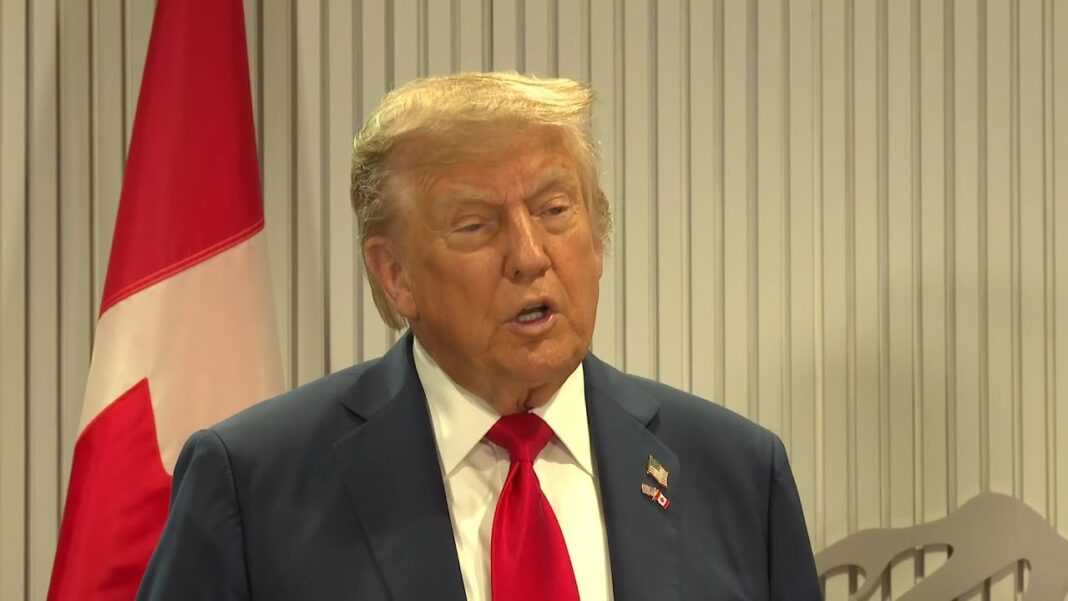CALGARY, Canada—The G7 summit in Canada opened on Monday with significant divisions on various issues, but a breakthrough emerged from a bilateral meeting between President Donald Trump and UK Prime Minister Keir Starmer on the sidelines.
Trump announced the signing of a U.S.–UK trade agreement after his meeting with the UK leader.
“We signed it, and it’s done. It’s a fair deal for both,” the president told reporters, alongside Starmer.
“It’ll produce a lot of jobs, a lot of income,” he added.
Starmer echoed the sentiment, noting that the agreement slashes tariffs on automobiles and aerospace.
“This is a very good day for both of our countries,” he said.
Negotiations for a UK–US Free Trade Agreement have been stalled since Autumn 2020, with no significant progress until their revival in February following Starmer’s visit to the White House.
“I want to just tell that to the people of the United Kingdom—he’s done a very, very good job,” Trump said, praising Starmer.
“They’ve been talking about this deal for six years, and he’s done what they haven’t been able to do.”
At the beginning of their remarks, Trump opened a folder to show the press the documents on the trade deal, and several pages fell out and onto the ground. Starmer quipped, “Very important document” as he helped pick up some of the pages.
Both sides had announced on May 8 that they had reached an agreement on the general terms of the trade deal.
The deal provides “American companies unprecedented access to British markets while bolstering the national security and economy of the United States,” according to the executive order Trump signed for the implementation of the trade agreement.
The deal provides increased access to the UK market for certain U.S. goods, including beef, ethanol, and some agricultural products.
As part of the agreement, the United States will establish an annual quota of 100,000 vehicles for UK imports at a 10 percent tariff rate.
In addition, the United States will establish a tariff exemption quota for steel and aluminum products, as well as certain derivatives of these metals, that are made in the UK.
Both countries agreed to negotiate “significantly preferential treatment” for UK pharma products and establish tariff-free bilateral trade in certain aerospace products.
By Emel Akan







